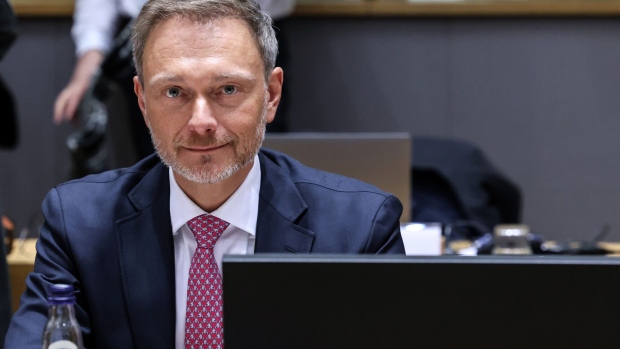Germany has made last-minute demands over planned revisions to the European Union’s fiscal rules governing public debt and deficits in a fresh setback that underlines how the bloc’s biggest economy has become an unpredictable negotiating partner, according to Bloomberg.
The country’s finance ministry, led by Christian Lindner, made surprise proposals on the eve of a meeting of EU counterparts in Brussels on Tuesday, when member states are expected to adopt conclusions on progress made to reform the Stability and Growth Pact, people familiar with the matter said.
The late push for changes to a draft text that had already been agreed two weeks ago raises doubts over whether the German minister will give it his backing. The European Commission aims to make legislative proposals in April to leave time to reach an accord on a new framework by spring next year.
Lindner’s move follows a series of decisions taken by the ruling coalition in Berlin that have upset EU partners in recent months on issues ranging from decarbonizing the car industry to financial support for Ukraine as the bloc faces a growing list of challenges that include the fallout from the collapse of Silicon Valley Bank.
“These days are confirming the level of uncertainty, which is still there in our economies, also volatility,” EU Economy Commissioner Paolo Gentiloni told reporters ahead of the meeting. “Today, we can give a strong contribution to strengthen trust and stability with the adoption of these conclusions of the council on our fiscal rules.”
He said the commission’s fully aware that several aspects of the proposal still need to be discussed and clarified in the coming weeks before the EU’s executive arm presents its legislative proposals.
“What is clear is that we need stable fiscal rules and fiscal rules that are fit for the new realities that we have to face,” he said.
Speaking to reporters ahead of the gathering, Finnish finance chief Annika Saarikko said: “The problem is we have not found the common agreement yet on fiscal.”
A spokeswoman for the German delegation in Brussels didn’t immediately respond to a request for comment.
Lindner’s last-minute demands include a condition that all work on legislative proposals should be completed this year and a request that the commission liaise extensively with all member states before publishing any legislative proposals, one EU diplomat said.
Based on the commission´s proposals last November, the draft text agreed by member states converged on issues including more flexible oversight of national expenditure and allowing more room for strategic investments in areas including climate and defense.


